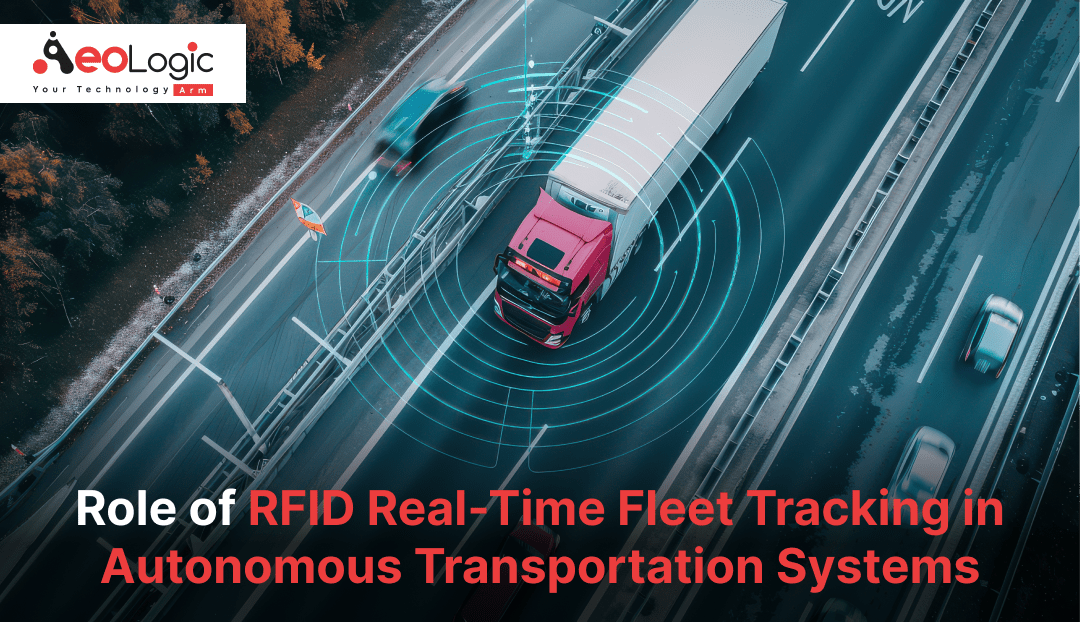The transportation industry has undergone various advancements and developments in recent years as this industry has been enhanced by integrating advanced technologies like artificial intelligence, IoT sensors, automation, etc. The transport services market is expected to grow from $8,164.3 billion in 2023 to $8,839.85 billion in 2024. This growth is attributed to population growth, urbanization, demographic changes, and government policies.
Overview
Automation solutions are one of the most used technologies in the transportation industry to operate heavy vehicles like trucks as well as medium and low-sized vehicles. This benefits most the fleet form of transportation as vehicles can navigate and drive automatically with autonomous systems. Overall, an autonomous transportation system can be defined as a transportation framework in which automobiles function without direct human intervention. This technology includes a variety of vehicles, such as cars, buses, trucks, drones, and trains, that are outfitted with sophisticated sensors, AI, and machine learning algorithms to carry out tasks and navigate.
But there are a few issues too while managing a fleet of autonomous transportation systems. As there is no intervention of humans then there could be a high chance of fraud, theft, or missing vehicles, vehicle condition, performance, unavailability of insights, etc.
These issues need to be solved and RFID real-time tracking can be the game changer in solving these issues related to autonomous transportation fleet management. Because RFID real-time fleet tracking makes precise vehicle monitoring and management possible, it is essential to autonomous transportation systems. By offering real-time information on vehicle locations, conditions, and performance, it improves operational efficiency by enabling resource allocation and routing that is optimal.
Related Statistics
RFID technology has been serving the world for a long time and has established a good market size at the global level. The global RFID market was valued at $14.11 billion in 2023 and is expected to grow to $37.71 billion by 2032. The vehicle RFID tags market was valued at $802.6 million in 2023 and is expected to grow at a compound annual growth rate (CAGR) of over 8% from 2024 to 2032.
In this article, we will examine the role of RFID real-time fleet tracking for autonomous transportation systems. We will also discuss some additional details, such as benefits, challenges, etc. We will conclude the discussion with a summary paragraph.
What is RFID Real-Time Fleet Tracking in Autonomous Transportation Systems?
RFID real-time fleet tracking in autonomous transportation systems refers to the process of constantly monitoring and controlling a fleet of self-driving cars, trucks, or other vehicles using Radio-Frequency Identification (RFID) technology. This system collects real-time information on the whereabouts, statuses, and conditions of vehicles using RFID tags that are affixed to them and readers that are placed at different locations.
RFID can integrate with other technologies like artificial intelligence, IoT solutions, blockchain, etc which can provide more benefits to fleet management for autonomous transportation systems.
Also Read “Advantages of Using RFID in Fleet Management for Car Rental“
Top Components of RFID-based Fleet Management System
The RFID-based fleet management system contains numerous components that join together to not only collect data automatically but also deliver vital information about the fleet. These components include:
- RFID windshield tags, RFID tire tags
- RFID-fixed readers and handheld readers.
- RFID antennas
- A system using RFID software.
- RFID printers for encoding needs and printing on RFID tags.
Benefits of RFID Real-Time Fleet Tracking in Autonomous Transportation Systems
![]()
There are a lot of benefits of RFID real-time fleet tracking in autonomous transportation systems as here are a few mentioned below.
Enhanced Visibility
Having proper visibility with insights is very necessary to keep everything in control. Without real-time tracking, one cannot track and get insights about the fleet which could result in loss. With the RFID real-time fleet tracking, it is possible to enhance operational transparency by giving real-time information about each vehicle’s position and condition.
Predictive Maintenance
Maintenance is an important aspect of managing a fleet of autonomous transportation systems. Any breakdown in the vehicle’s system could result in affecting the whole fleet and loss for the company. This is very important to detect the fault before too much damage. RFID real-time fleet tracking in autonomous transportation systems reduces unplanned breakdowns by enabling proactive maintenance by monitoring vehicle conditions and usage trends.
Increased Safety and Security
Another important benefit of real-time tracking of the fleet with RFID is theft protection and enhancement in safety. As there are no humans that creates a high chance of theft. With real-time RFID tracking, it can improve vehicle and cargo security by assisting in the prevention of theft and unlawful access. Any external intervention can give a warning to the administration.
Seamless Integration
One cannot look at the system and screen to monitor the track of the fleet of autonomous transportation systems. There should be flexibility in the techniques as anyone can access it easily on every device. RFID real-time fleet tracking can improve communication between infrastructure and autonomous cars for safer and more effective navigation when used in conjunction with other technologies. Even very compatible with smartphones that give overall convenient access.
Enhances Passenger Experience
Many vehicles are autonomous and carry passengers from one place to another. By effectively controlling vehicle capacity, RFID can speed up boarding procedures and cut down on wait times for passenger transportation. Passengers’ experiences can be improved by using the data gathered to customize services.
Also Read: Benefits of RFID in Lab Equipment Tracking and Inventory
Challenges with RFID Real-Time Fleet Tracking
We have seen many benefits of RFID real-time fleet tracking but there could be some major challenges too. Here are a few mentioned below.
- Initial investment can be a challenge as RFID infrastructure, including tags, scanners, and software, can have expensive initial setup costs.
- The durability of RFID tags can be an issue as not all RFID tags are appropriate for every situation, and they must be strong enough to survive challenging conditions.
- User training can be another challenge as staff must be trained to effectively use and maintain RFID systems, which can require time and resources.
Also Read: Benefits of RFID Asset Tracking in the Supply Chain
Why Choose Aeologic for RFID Real-Time Fleet Tracking?
Choose Aeologic for RFID Real-Time Fleet Tracking to enhance the efficiency and safety of your autonomous transportation systems. Our advanced RFID technology provides accurate, real-time data, ensuring seamless tracking and management of your fleet.
With Aeologic, you gain access to precise location updates, improved route optimization, and reduced operational costs. Our solutions are tailored to meet your unique needs, making fleet management more streamlined and reliable.
Trust Aeologic’s expertise in RFID technology to keep your operations running smoothly while minimizing risks and delays. Experience the future of fleet tracking with our innovative solutions designed for smarter, data-driven decision-making.
Also Read “GPS Vehicle Tracking Solutions for Cold Chain Industry“
Final Words
By offering vital visibility and operational efficiency, RFID real-time fleet tracking greatly improves autonomous transportation systems. Fleet managers can optimize routes, cut expenses, and increase safety thanks to its real-time data delivery capabilities on vehicle locations, performance, and maintenance requirements.
There are a few challenges but surely going overweight has lots of benefits. Also, this is a fact that every great thing has a few bad sides. As technology advances, it will play a crucial part in determining the direction of autonomous transportation in the future, spurring efficiency and innovation in the sector.







